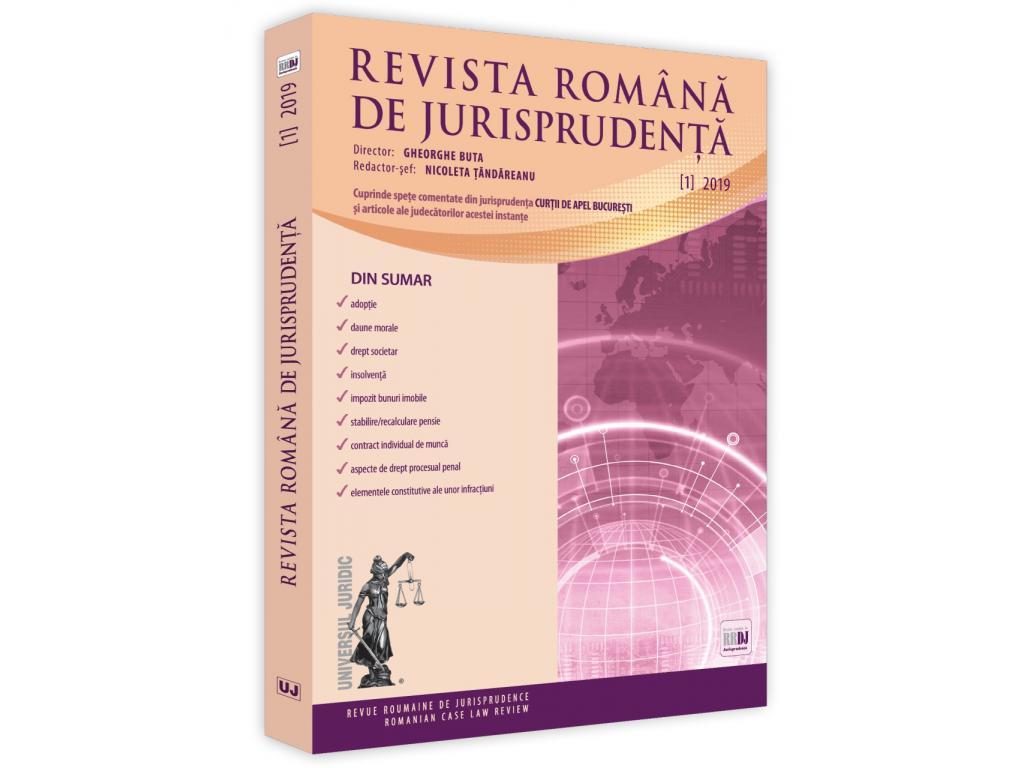Application for revision based on the provisions of art. 509 paragraph (1) point 1 of the Code of civil procedure. Limits of the object of investiture
DREPTUL MUNCII ŞI DREPTUL SECURITĂȚII SOCIALE
Abstract
According to art. 509 paragraph (1) point 1 of the Code of civil procedure, the revision of a court order ruled over the merits or evoking the merits may be requested if only it ruled on certain issues which had not been requested or it did not rule on a requested issue or it had been given more than it had been requested. The assumption regulated in this case of withdrawal of a final court order actually aims at three situations in which the court stated outside its limits. In the first case, the court whose decision is challenged, ruled on certain issues which were not requested, settling the case extra petita. The second case shall be represented by the ruling minus petita, in the sense that the settlement of one or several claims was omitted. The last case is the case of plus petita in which the court awarded more than it had been requested in the introductory claim. These assumptions are developed by the legislator in relation to the “requested issue”, understood as claims brought before the court by the requests referred to the court, namely the introductory claim, the counterclaim, the application for action etc. , the reasoning consisting of the protection of the principle of availability, governing the civil proceeding and being provided for in art. 9 of the Code of Civil Procedure. If in relation to the judgment in the first instance the examined ground for revision supposes to verify the correspondence between claims or parties’ defences and the operative part of the judgment, in appeal, the merits of the case shall be evoked, and the limits of omnia petita judgment suppose the solutions given to the parties’ claims after the annulment of the decision ruled in the first instance.








